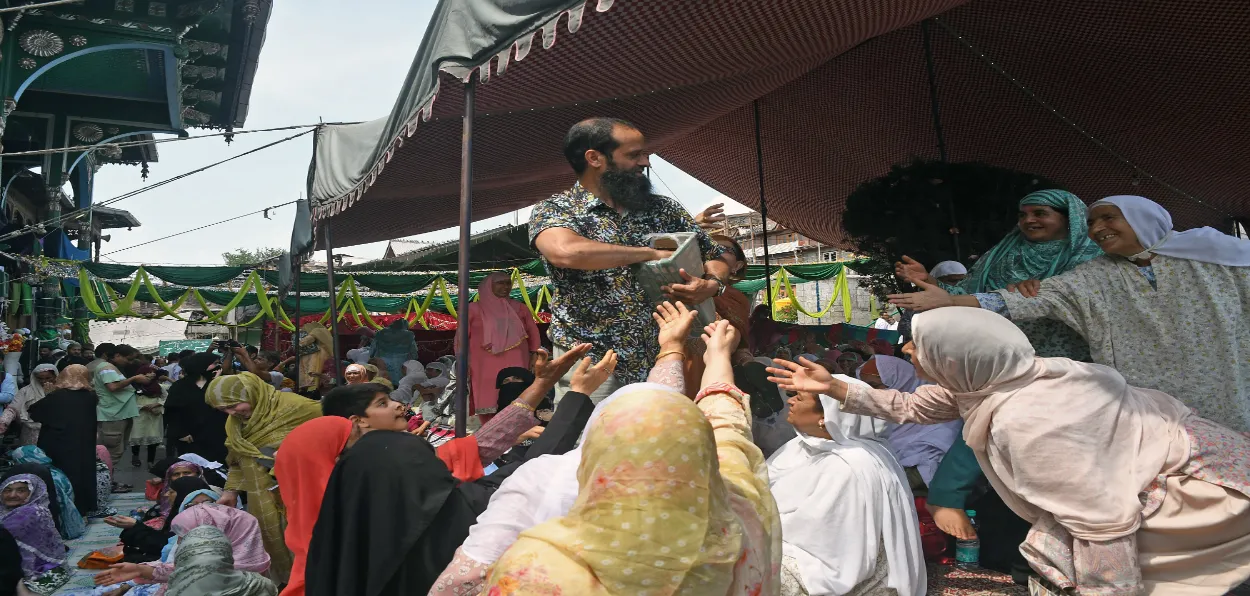
Eman Sakina
No religion is unified. Catholicism, for instance, is not practised the same manner in New York City as it is in rural Italy. There are differences between these two locations in terms of language, culture, tradition, political and social circumstances, and even food.
Such geographic differences are certainly important in Islam. But also important are the numerous legal schools and their interpretations. Since Islam is a religion predicated on law (sharia), variations in the interpretation of that law have contributed to regional differences.
Also significant in the modern world is the existence of other religions. Malaysia, for example, has a relatively large percentage of religious minorities (up to 40% of the population). Saudi Arabia has virtually none.
There are historical reasons for this variation. Despite popular opinion, Islam did not appear fully formed at the time of Muhammad (570-632AD). There were huge debates over the nature of religious and political authority, for instance, and who was or was not a Muslim.
It is similarly misguided to assume that a unified teaching simply spread throughout the Mediterranean region and beyond.
It is not important to us here how Muhammad's message evolved through the ages into the religion of Islam, complete with doctrinal and legal content. However, it's crucial to remember that his message travelled to several areas. It would take a long time for modern nation states to emerge. Additionally, each of these regions already had its own set of cultural, legal, and religious traditions.
The result was that Islam had to be articulated in the light of local customs and understandings. This was done, in part, through the creation of legal courts, a class of jurists (ulema; mullas in Shi`ism), a legal code (sharia) and a system of interpretation of that code based on rulings (fatwas).
Today, there are more than one and a half billion Muslims worldwide, making Islam the second-largest religion on the planet after Christianity. But it is a rich and variegated religion. And this variation must be considered when dealing with it.
We can even look at some of the Muslim practices followed in the world and can adopt them for India too. In Pakistan, due to Islamic and tribal influences, non-urban regions have varying levels of gender segregation, while big cities too have conservative expectations in terms of interactions between men and women. Couples usually do not hug or kiss in public in a non-platonic way. Regardless of that, the people of Pakistan are helpful, friendly, approachable, and humble. Qawwali and Ghazal are the nation’s auditory treasures.
Family comes first in Pakistan due to religious, cultural, economic, and societal values. Pakistani society is not led by individualism but rather by collectivism, where family and other relationships stand strong.
Guests, tourists, and visitors, whether domestic or international, are always welcomed with open arms. Even the poorest labourers go out of their way to help new visitors. Cultural and religious beliefs encourage Pakistanis to show love and respect towards guests. In Islam especially, a guest is a blessing from God, and it is taught that they must be given the best treatment possible.
In Arabic countries, Trust is the Key. For many Arabs there is no separation between personal and professional lives, and as such, a potential business partner must also be considered a potential friend.
It is imperative to organise a face-to-face meeting as the ability to build trust is greatly increased in this environment. An Arab businessman/woman will want to engage in small talk on a personal level before the purpose of the visit or meeting is even brought up. This is all part of a desire to understand you on a personal, friendly level, before discussing business.
Considering Malaysia, the children of a Malay household are strictly bound by custom to look upon their parents with respect and total obedience. Following Islamic practices, Malays would attend Friday (Jumaat) prayers at a nearby mosque around noon.
Most businesses will give a two-hour lunch break, or even longer, on Fridays for Malays and Muslim workers for prayers, whereas morning school sessions are dismissed early and afternoon sessions start later to allow time for students and parents to carry out the prayers.
ALSO READ: Dr. Muhammad bin AbdulKarim Al-Issa's walks the talk on unity of humans
Malays always use the right hand while eating even when they use forks and spoons. In fact, all good things are done with the right hand including holding the holy book of Quran.
Thus, if we also follow the same Muslim practices for India we would surely be better humans.
